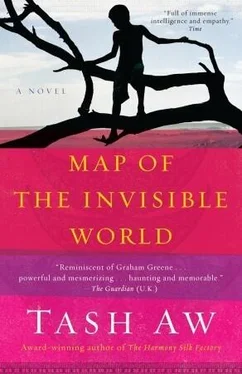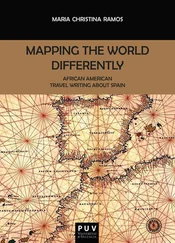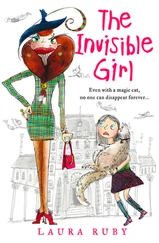Tash Aw - Map of the Invisible World
Здесь есть возможность читать онлайн «Tash Aw - Map of the Invisible World» — ознакомительный отрывок электронной книги совершенно бесплатно, а после прочтения отрывка купить полную версию. В некоторых случаях можно слушать аудио, скачать через торрент в формате fb2 и присутствует краткое содержание. Год выпуска: 2010, Издательство: Spiegel & Grau, Жанр: Современная проза, на английском языке. Описание произведения, (предисловие) а так же отзывы посетителей доступны на портале библиотеки ЛибКат.
- Название:Map of the Invisible World
- Автор:
- Издательство:Spiegel & Grau
- Жанр:
- Год:2010
- ISBN:нет данных
- Рейтинг книги:4 / 5. Голосов: 1
-
Избранное:Добавить в избранное
- Отзывы:
-
Ваша оценка:
- 80
- 1
- 2
- 3
- 4
- 5
Map of the Invisible World: краткое содержание, описание и аннотация
Предлагаем к чтению аннотацию, описание, краткое содержание или предисловие (зависит от того, что написал сам автор книги «Map of the Invisible World»). Если вы не нашли необходимую информацию о книге — напишите в комментариях, мы постараемся отыскать её.
comes an enthralling novel that evokes an exotic yet turbulent place and time—1960s Indonesia during President Sukarno’s drive to purge the country of its colonial past. A page-turning story,
follows the journeys of two brothers and an American woman who are indelibly marked by the past — and swept up in the tides of history.
Map of the Invisible World — читать онлайн ознакомительный отрывок
Ниже представлен текст книги, разбитый по страницам. Система сохранения места последней прочитанной страницы, позволяет с удобством читать онлайн бесплатно книгу «Map of the Invisible World», без необходимости каждый раз заново искать на чём Вы остановились. Поставьте закладку, и сможете в любой момент перейти на страницу, на которой закончили чтение.
Интервал:
Закладка:
“We are not from the embassy, or from a newspaper,” Margaret said, noticing that the nurse was eyeing Mick with a mixture of curiosity and suspicion. “The patient is someone very dear to us, and we — well, his whole family — have been suffering because we have had no news of him. He has a son — look.” Margaret slid a photo of Adam across the smooth surface of the counter. It had been taken when he was much younger, and he looked timid and fragile, smiling nervously at the camera from underneath an enormous coolie hat. Margaret had chosen it specially from the scattered collection he had left at her house. “It’s his adopted son. An orphan. His name is Adam. The poor boy has no one else in the world.”
From the drawer, the nurse pulled out a thick buff-colored folder and began leafing through the papers inside. She paused several times and returned to documents she had already looked at, and then pulled out another folder and did the same thing. Margaret watched her trace her finger down each sheet of paper, noticing the rough, leathery skin on her hands; every time the finger hesitated, pausing at a name or a line of unreadable text, Margaret felt the urge to reach over the counter and grab the folder. Every time this nurse named Cantik sighed or tutted or shook her head, Margaret thought: Oh no. She hoped Cantik would say nothing, that her finger would continue down the page and then repeat the same journey down the next one, and the next, and the next.
“I’m so sorry,” Cantik said at last. “I don’t know what is going on. K. de Willigen — that’s him, isn’t it? — well, yes, he was here. Ward 5C. Intensive care. Discharged two days ago. Normally patients come out of intensive care and get moved into another ward, but he’s no longer at the hospital. It happens nowadays. Not enough beds in Jakarta, especially with all the”—she looked around cautiously—“troubles going on in the country. Anyway, his medical record is missing. I don’t know why. I can’t even tell you what he was suffering from.”
“But you’re sure he’s not dead?”
Cantik chewed on the end of a pencil as she flicked through the last pages of another folder. “I have no idea. I’m sorry. You know, in this place we often get people whose records are confidential. If your friend was someone important, well … a lowly person like me wouldn’t know anything much. I just take my pay and go home.”
“He wasn’t really very important,” said Margaret. Part of her felt an unusual relief at the lack of answers, for she knew that the answers were not likely to be comforting. She had become sentimental and cowardly, she thought, just like everyone else: afraid to confront pain, preferring to delay it instead. And yet another part of her felt cheated, frustrated. She hated this feeling of being thwarted, and so she stood at the counter, caught between these two conflicting sensations: Should she retreat into a cloud of uncertainty or push on with her quest?
“I know who can help you,” Cantik said, looking at her notebook. “Dr. Hendro. He was on duty in the intensive care ward two nights ago. I can call him, if you want.”
“No, really, Ibu Cantik,” Margaret said, “that won’t be necessary. We don’t want to take up any more of your time.”
“Oh, look, there he is!” She pointed behind them at a lanky youth hurrying down the corridor in a pigeon-footed shuffle. “Hey, Hendro!”
The man turned around but did not make any movement toward them. He did not look like a doctor: He wore nice brown trousers and a checked cowboy shirt, and his glasses were shaded, not quite dark enough to be sunglasses but not clear either. Margaret could barely make out the shape of his eyes.
“Yes?” he said. He had a rich voice that seemed too old and elegant for his long-limbed, gawky body.
“We’re, um, we’re looking for a patient you might have seen recently,” Margaret explained. As she elaborated, the doctor shuffled toward them and went behind the counter as if taking up a defensive position. He flicked absently through Cantik’s folders and shook his head before Margaret had finished.
“No longer here,” he said, his voice becoming even more magisterial. “I remember him. Dysentery, dehydration. Suspected septicemia. Quite common among white people — as you know.” He looked at Margaret and Mick with an expression of mild amusement (perhaps even contempt, thought Margaret, and she didn’t believe she was wrong). “He asked me if he could be discharged. We don’t keep patients here against their will, you know. We live in a free country now.”
“You let him go, even though he was dying?” Margaret said, trying hard to remember her rules of engagement (Do Not Lose Temper, et cetera).
“If a patient no longer wishes to be treated, that is not our problem. There are five hundred people waiting for a bed in this hospital, so if someone is ungrateful for all the things Indonesia has done for them and wants to leave, we say, Please go.”
“You obviously haven’t heard of the Hippocratic oath here.” Margaret felt Mick’s hand on her elbow, exerting the faintest pressure. “How could you let a dying man out onto the streets? You say he had a blood infection — how could you stand by and do nothing?”
The young doctor smiled. “I want to ask you something. Have you ever seen a pregnant thirteen-year-old girl dying in childbirth because she is malnourished and doesn’t have enough strength in her body to keep herself alive after giving life to her baby? What about boys of eight or nine who have arms chopped off in wars with their Christian neighbors, or grandmothers whose families try to poison them because they don’t have enough money to feed them, only the poison doesn’t work, or isn’t strong enough, and they have to come to the hospital? I see these things every day here. Every day. So one white guy with a bad stomach isn’t going to give me sleepless nights.”
“A dying man is a dying man,” Margaret said, and felt the tug of Mick’s hand again, more insistent this time.
The doctor shrugged and made a cursory effort to flick through the papers again. “As I said, not my problem. Anyway, he was admitted under army rules. I don’t get mixed up in all that. I just treat them while they are here. I think, however,” he paused and smiled, “I think there are special rules for Dutch people. Maybe he has been repatriated. I honestly don’t know what happened to him. I came in the day before yesterday and he was no longer in the ward.”
IT WAS VERY hot in the car. The old acacia tree under which they had parked had lost its leaves and offered little shade. “What a smug, self-satisfied, pompous bastard. I could have wrung his neck,” said Margaret. “What has become of this country? Why can’t we get any thing done anymore? It’s just so frustrating, Mick.”
Mick shrugged as he reversed onto the cracked asphalt in front of the hospital. A hundred years ago they would have been in a carriage, Margaret thought; she would have been dressed in a fluffy, high-collared dress under the same unforgiving sun. She wondered which world she would have preferred living in: that lost world of the past in which she would have been powerful but despised by the locals, or this one, where she was completely powerless and only slightly less despised. She thought of the young doctor in his fashionable shirt and sunglasses, his cold, hard sneer. Maybe the past was a better place to live after all.
“For as long as I’ve been here, Indonesia has been like this,” Mick said, navigating the car through the ranks of scooters and bicycles. The car kicked up a cloud of fine dust as it crawled along. “You know better than anyone how this place works.”
“It hasn’t always been like this. I remember a time when the people were … well, everything was just easier.”
Читать дальшеИнтервал:
Закладка:
Похожие книги на «Map of the Invisible World»
Представляем Вашему вниманию похожие книги на «Map of the Invisible World» списком для выбора. Мы отобрали схожую по названию и смыслу литературу в надежде предоставить читателям больше вариантов отыскать новые, интересные, ещё непрочитанные произведения.
Обсуждение, отзывы о книге «Map of the Invisible World» и просто собственные мнения читателей. Оставьте ваши комментарии, напишите, что Вы думаете о произведении, его смысле или главных героях. Укажите что конкретно понравилось, а что нет, и почему Вы так считаете.












